Boom Cylinder For Liebherr Large Excavator R974CL
As one of the hydraulic cylinders manufacturers, suppliers, and exporters of mechanical products, We offer hydraulic cylinders and many other products.
Please get in touch with us for details.
Mail:sales@hydraulic-cylinders.net
Manufacturer supplier exporter of hydraulic cylinders.
Boom Cylinder For Liebherr Large Excavator R974CL
Product Overview
The Boom Cylinder is an essential hydraulic component specifically designed for large excavators like the Liebherr R974CL. This cylinder plays a critical role in controlling the boom’s movement, enabling the excavator to perform various tasks efficiently. As a hydraulic cylinder, it allows for the lifting, lowering, and tilting of the boom, which is vital for material handling operations on construction sites.
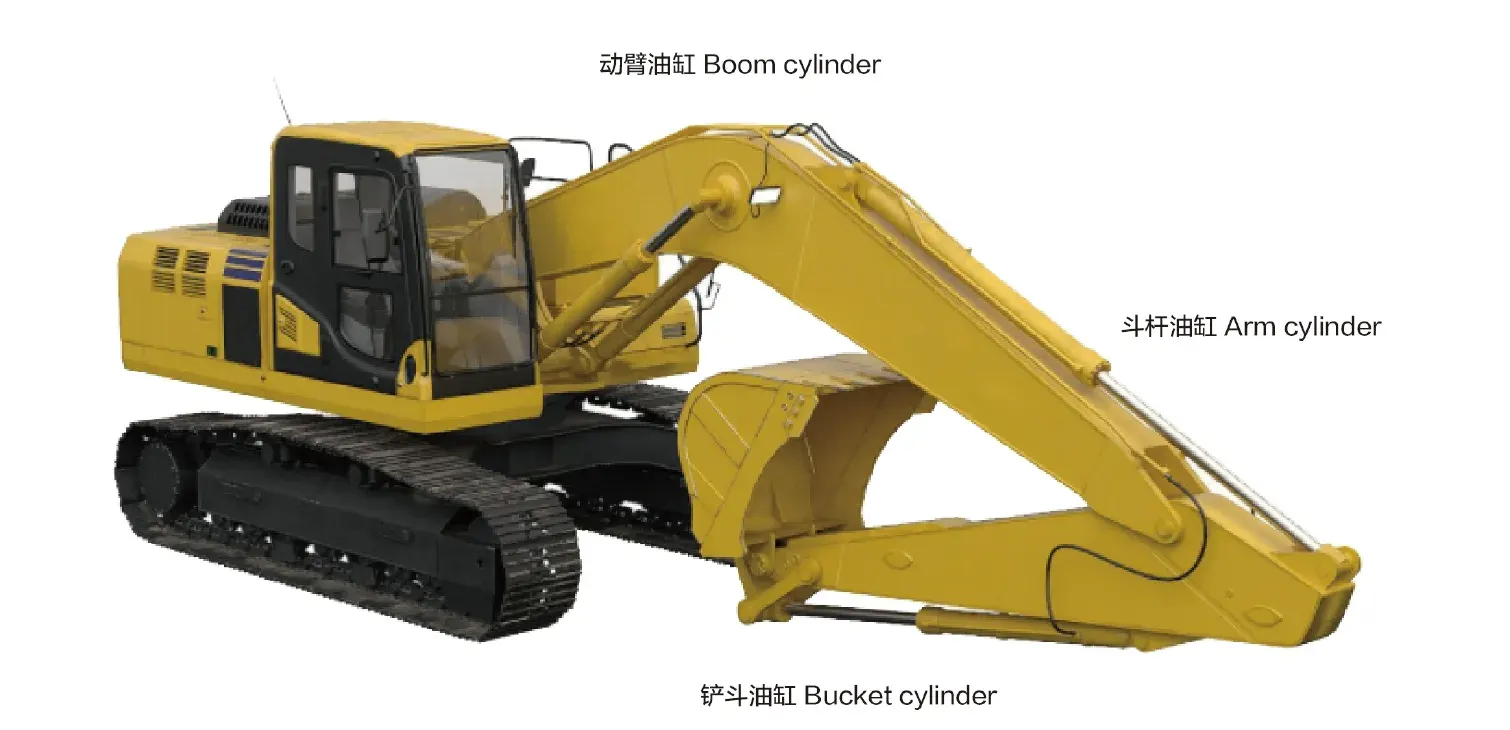
Definition and Functionality
Hydraulic cylinders, such as the Boom Cylinder, are devices that convert hydraulic energy into mechanical force. In large excavators, these cylinders are responsible for controlling the boom’s motion, which involves extending and retracting it to reach different working heights and angles. This functionality is crucial as it allows operators to dig, lift, and maneuver heavy materials with precision.
The importance of the Boom Cylinder extends beyond simple movements. It is designed to withstand high pressures and loads, making it durable for rough working conditions. The cylinder’s design considers various factors, including wear resistance and corrosion protection, ensuring a long service life and reliable performance.
Key Features
- High Strength and Durability: Typically made from high-strength steel or aluminum, capable of withstanding high pressure and heavy loads, suitable for harsh working environments.
- Efficient Hydraulic Operation: Utilizes hydraulic oil pressure for smooth extension and retraction, providing quick response to control commands and strong push/pull capabilities.
- Diverse Types: Available in single-acting (hydraulic action in one direction) or double-acting (hydraulic action in both directions) configurations, accommodating various operational needs.
- Space-Saving Designs: Some models feature telescopic designs, allowing greater extension without increasing external dimensions, ideal for confined applications.
- Easy Replacement: Our products can perfectly substitute existing hydraulic cylinders, ensuring compatibility and reliable operation.
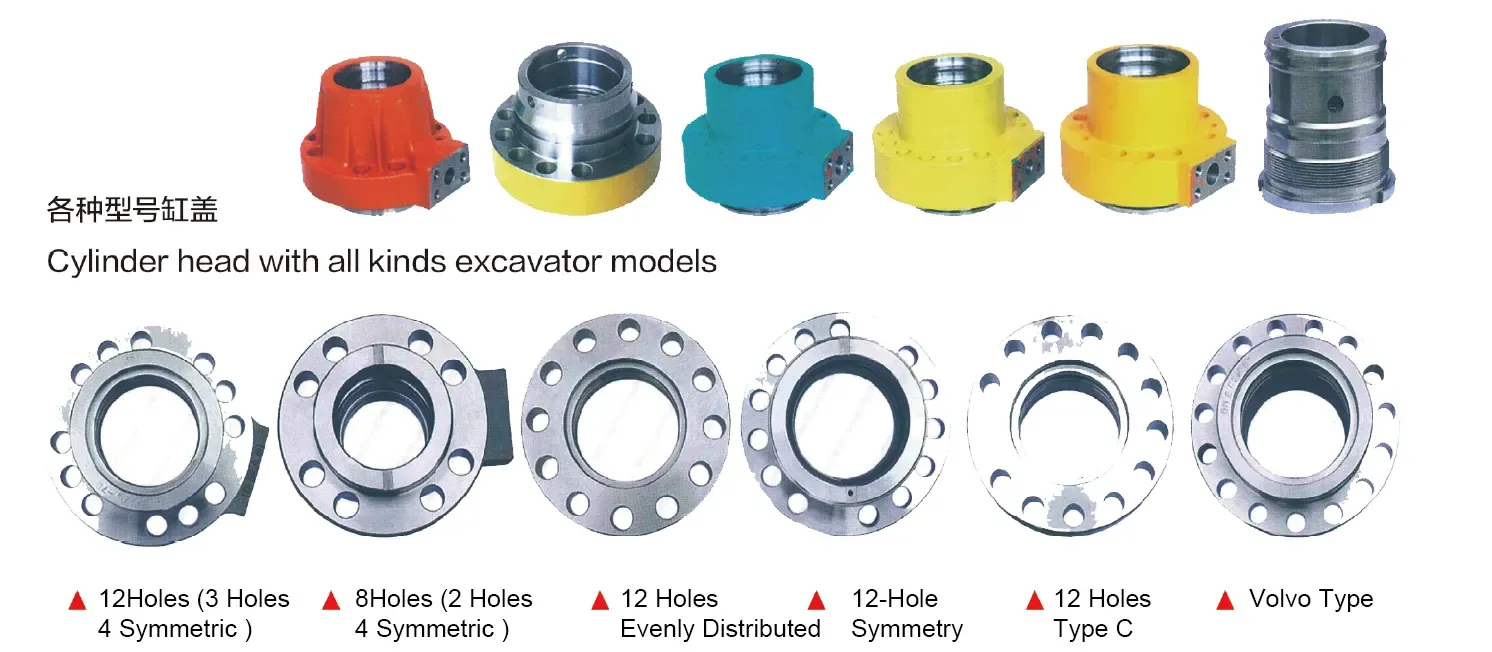
Applications
Construction Equipment
In construction machinery, Boom Cylinders are found in excavators, where they are essential for digging, loading, and moving soil or debris. The precise control of the boom allows operators to perform intricate tasks, such as trenching and lifting heavy materials, effectively. In backhoe loaders, the boom cylinder not only aids in excavation but also assists in lifting operations, providing versatility and efficiency on-site.
Agricultural Machinery
In agriculture, front-end loaders utilize boom cylinders for tasks such as scooping, lifting, and transporting soil, hay, and other materials. The ability to control the boom’s angle and height enhances the operator’s efficiency, making it easier to manage farm equipment and perform various agricultural tasks, ensuring productivity in the field.
Excavators
In excavators, the boom cylinder is crucial for enabling the bucket to penetrate the soil effectively. This capability allows for efficient digging, which is a fundamental aspect of excavating operations across various industries, including construction and mining. The robust design of the boom cylinder ensures reliability when tackling tough materials.
Loaders
In front loaders, boom cylinders facilitate the lifting and dumping of materials effectively. The precision in controlling the boom allows for smooth operation, making it easy to lift heavy loads and deposit them where needed, thereby increasing operational efficiency and reducing time spent on tasks.
Design Considerations and Selection Criteria
Load Capacity
When selecting a Boom Cylinder, understanding its load capacity is paramount. The cylinder must be able to handle the maximum loads expected during operations without risking failure. This involves evaluating the hydraulic pressure ratings and the materials used in the cylinder’s construction, ensuring that it can perform consistently under heavy-duty conditions.
Sealing and Durability
Sealing is another critical aspect of hydraulic cylinder design. Effective sealing prevents hydraulic fluid from leaking, which is essential for maintaining pressure and ensures smooth operation. High-quality seals made from durable materials, such as polyurethane or nitrile rubber, are recommended to withstand wear and environmental factors. Regular inspection and replacement of seals can significantly extend the lifespan of the cylinder.
Safety Features
Safety is a key consideration in the design of hydraulic cylinders. Manufacturers often incorporate features such as pressure relief valves to prevent over-pressurization and ensure safe operation. Additionally, the cylinder should be designed to withstand unexpected loads without failure, providing peace of mind to operators and reducing the risk of accidents on site.
Maintenance Accessibility
Ease of maintenance is another essential criterion. A well-designed Boom Cylinder should allow for easy access to all critical components for inspection, lubrication, and repair. The inclusion of service ports and clear access points for maintenance personnel can enhance the efficiency of upkeep, ensuring the cylinder remains in optimal working condition throughout its lifecycle.
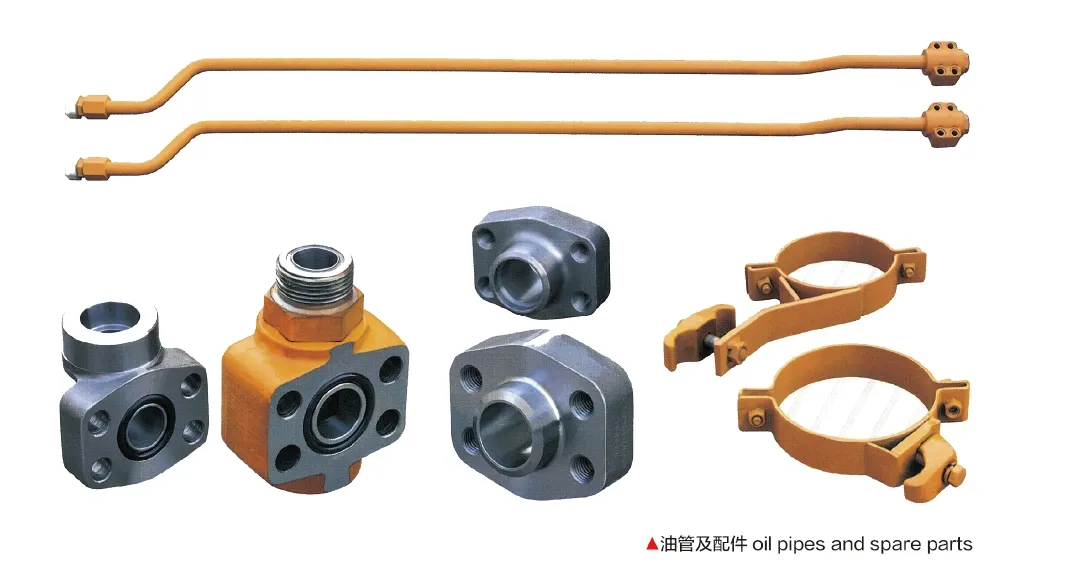
Sealing and Lubrication
Proper sealing and lubrication are vital for the longevity and performance of the Boom Cylinder. Various seals, such as piston seals and rod seals, are utilized to prevent fluid leakage and contamination. The selection of seals made from durable materials, such as polyurethane and nitrile rubber, is recommended for their abrasion resistance and overall performance.
The cylinder body and threaded end surfaces undergo fine processing to enhance wear resistance, crucial for maintaining integrity under constant hydraulic pressure. Regular lubrication involving the timely addition of hydraulic oil is necessary to reduce friction and wear between moving parts, prolonging the cylinder’s lifespan and ensuring smooth operation.
Regular Inspection and Preventive Maintenance
- Routine Inspections: Regular checks should be conducted to identify any signs of wear, damage, or leaks. Early detection of issues can prevent costly repairs and ensure continuous operation.
- Proper Lubrication: Maintaining appropriate lubrication levels is essential to reduce friction and avoid premature wear of the seals and moving parts. Schedule lubrication based on operational hours or manufacturer recommendations.
- Seal Replacement: Seals should be inspected periodically and replaced when signs of wear or damage are evident. This proactive measure helps in maintaining the hydraulic system’s efficiency and functionality.
Proper Installation Guidelines
Correct installation of the Boom Cylinder is crucial for optimal performance. Begin by preparing the installation area, ensuring it is clean and free from debris. It is important to align the cylinder properly with the mounting brackets to prevent undue stress on the cylinder and its components.
Utilizing appropriate mounting brackets to secure the cylinder is recommended to ensure stability during operation. Once in place, the hydraulic lines should be connected, ensuring there are no leaks. After installation, conduct a thorough check of all connections and perform a test operation to verify functionality before putting the equipment into full service.
Maintenance Tasks
Regular Checks
Conducting regular checks on the Boom Cylinder is essential for identifying potential issues early on. Look for signs of hydraulic fluid leaks, wear on seals, and any irregularities in operation. Keeping a log of inspections can help track the condition over time.
Appropriate Lubrication
Ensure that the cylinder is lubricated according to the manufacturer’s guidelines. Using the correct type and amount of hydraulic oil will help maintain optimal performance and reduce wear. Over-lubrication can also be detrimental, so it is essential to follow specifications closely.
Seal Replacement and Calibration Checks
Replacing worn seals is critical to maintaining the cylinder’s efficiency. Regularly scheduled seal replacements prevent leaks and preserve hydraulic pressure. Calibration checks ensure that the cylinder operates within its specified parameters, avoiding unnecessary strain on the system.
Safety Considerations and Environmental Factors
When utilizing hydraulic cylinders, implementing safety measures is of utmost importance. Operators should be trained in safe handling practices and aware of the potential hazards associated with hydraulic systems. Proper personal protective equipment (PPE) should be worn at all times, and safety protocols must be followed to minimize risks during operation.
Fault Diagnosis and Common Issues
Diagnosing Hydraulic Cylinder Problems
Common issues with hydraulic cylinders include leaks, reduced performance, and uneven operation. Identifying the root cause of these problems requires careful inspection and testing of the hydraulic system. Look for visible signs of fluid leaks, listen for unusual noises during operation, and monitor the cylinder’s response to control commands.
Solutions for Common Issues
To address leaks, check all seals and connections, replacing any damaged components as needed. For performance issues, evaluate the hydraulic fluid levels and quality, as contaminated or low fluid can impact functionality. Regular maintenance and timely repairs can prevent most issues from escalating, ensuring the longevity of the hydraulic cylinder.
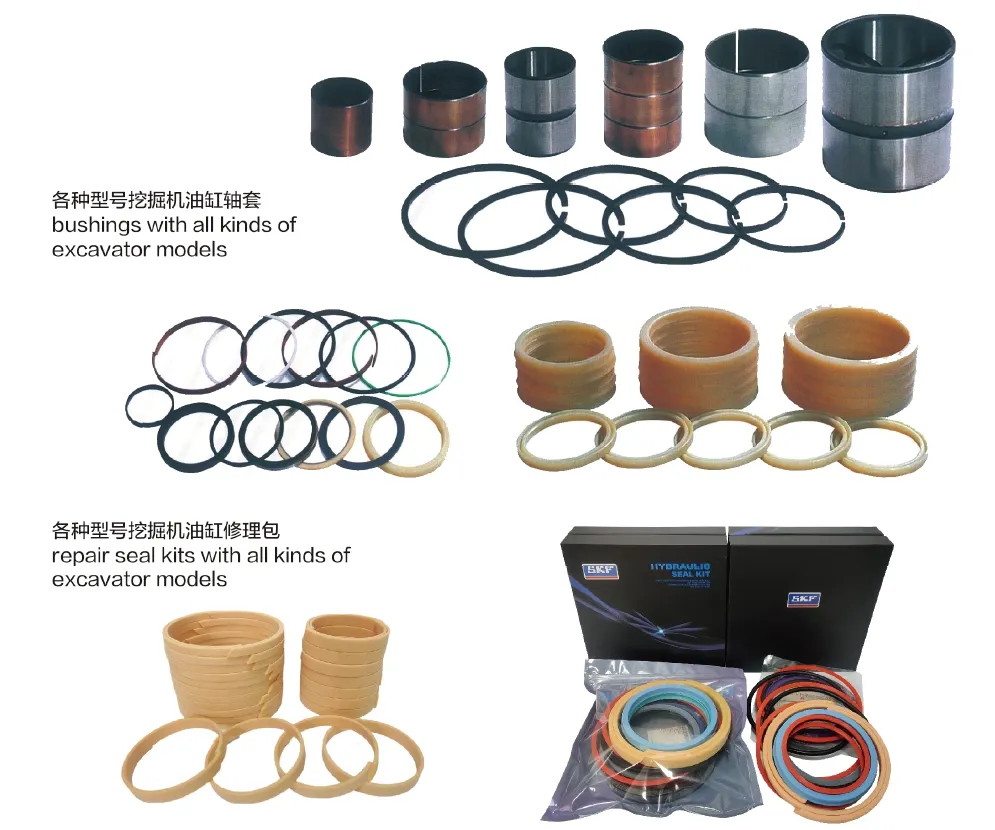
Company Introduction
We are a leading manufacturer of replacement hydraulic cylinders, offering a comprehensive range of products. Our company has established itself as a prominent player in both domestic and international markets, specializing in the manufacturing and wholesale distribution of hydraulic cylinders. We adhere to excellence in quality, backed by a sophisticated manufacturing management strategy.
Our commitment to technological innovation is evident in our utilization of digital high-end manufacturing equipment and professional testing systems. This continuous improvement of our manufacturing platform enables us to enhance product quality and meet diverse customer needs efficiently.
Our expertise in professional services, international certifications, and customized solutions sets us apart in the industry, ensuring that we can provide exceptional products and support to our clients.
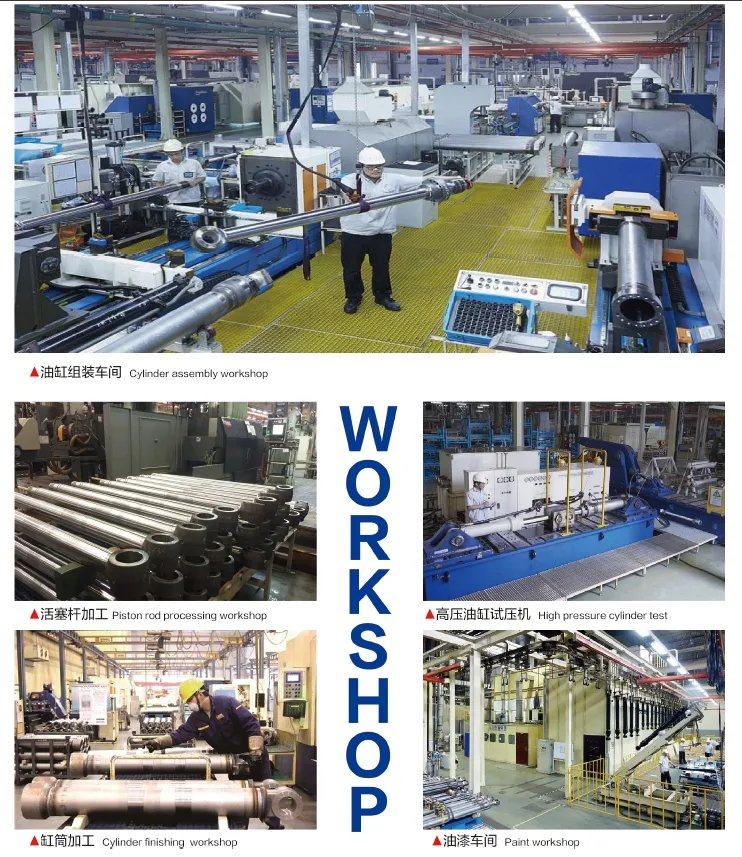
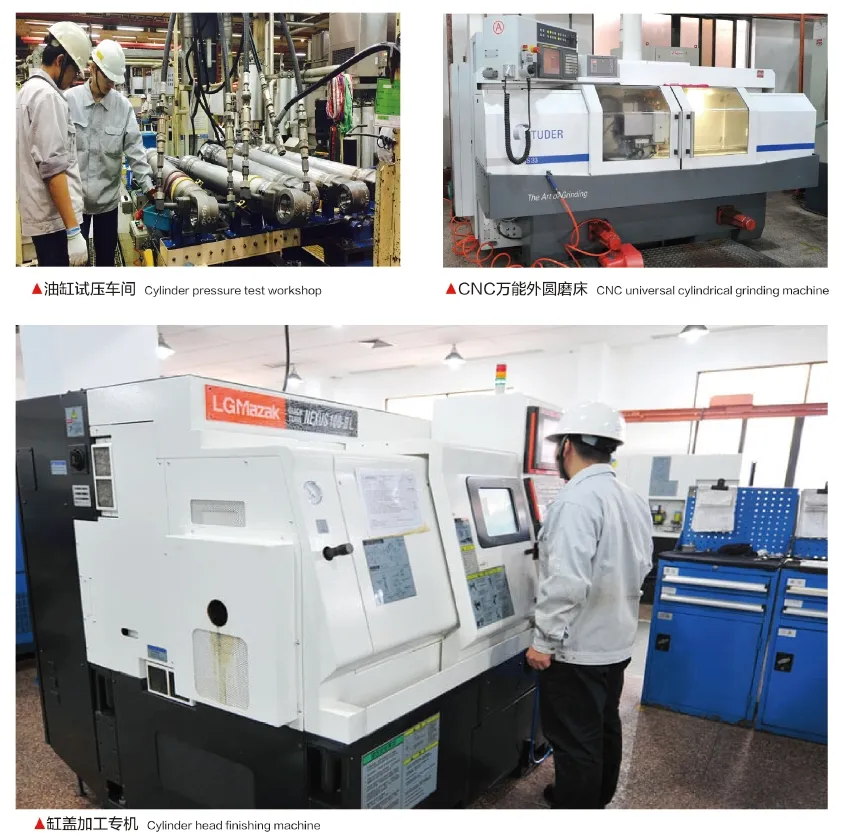
Author: lyl
Take a Tour of Our VR Factory:
Take a tour of our VR factory with the following
Hydraulic Cylinder Application:


